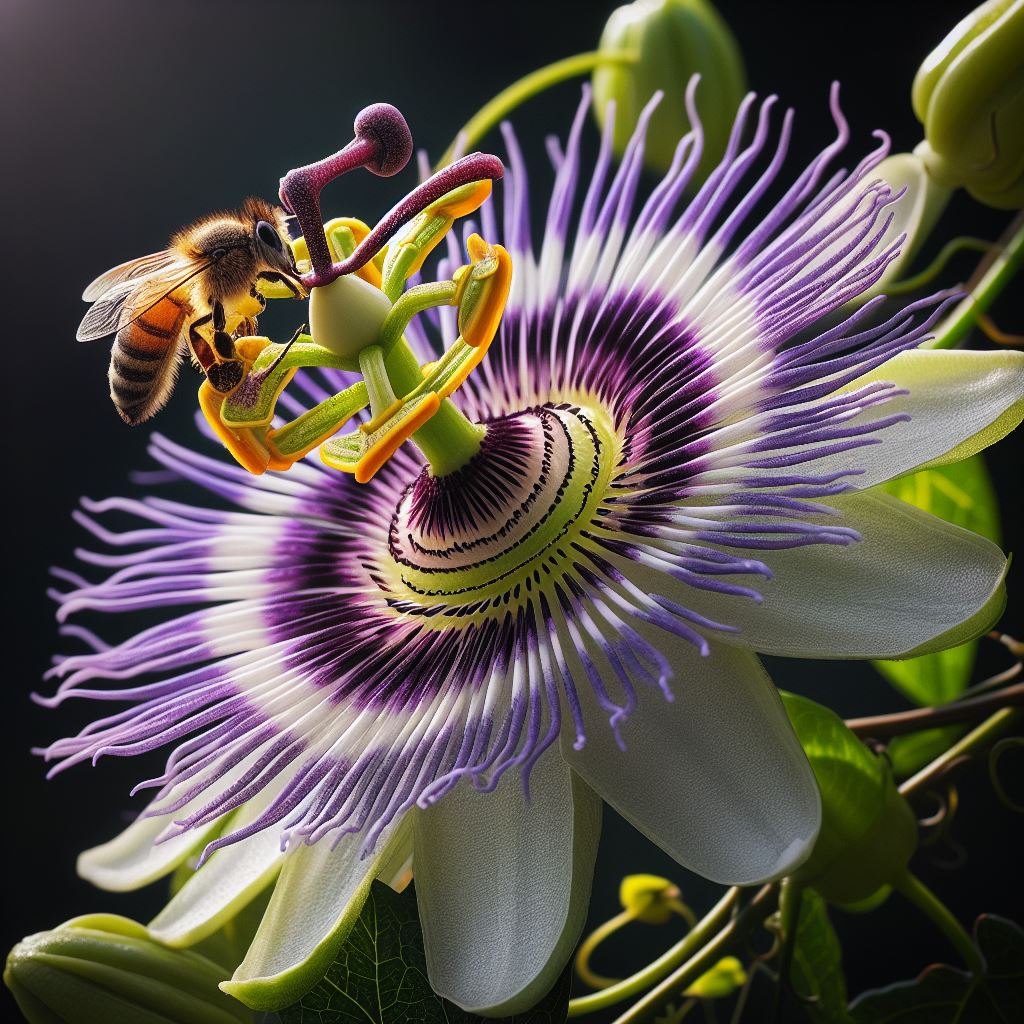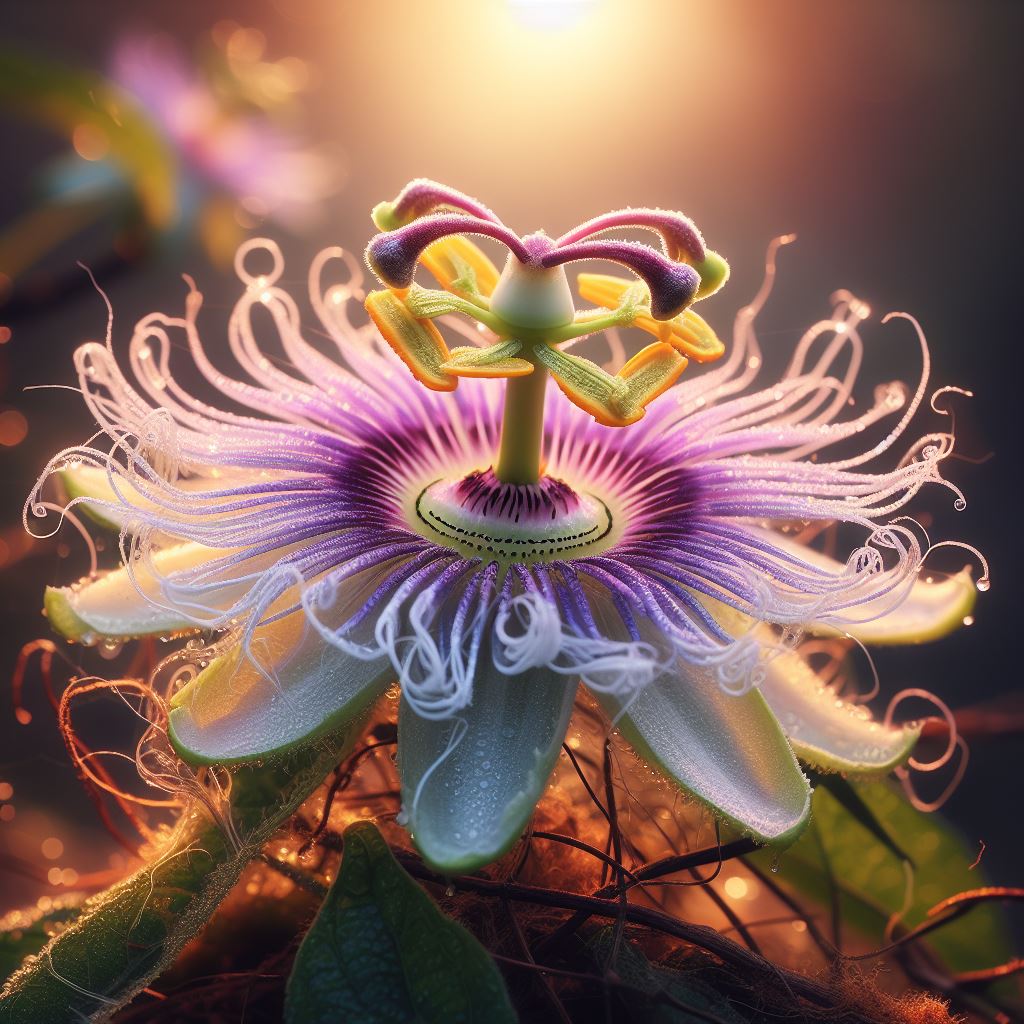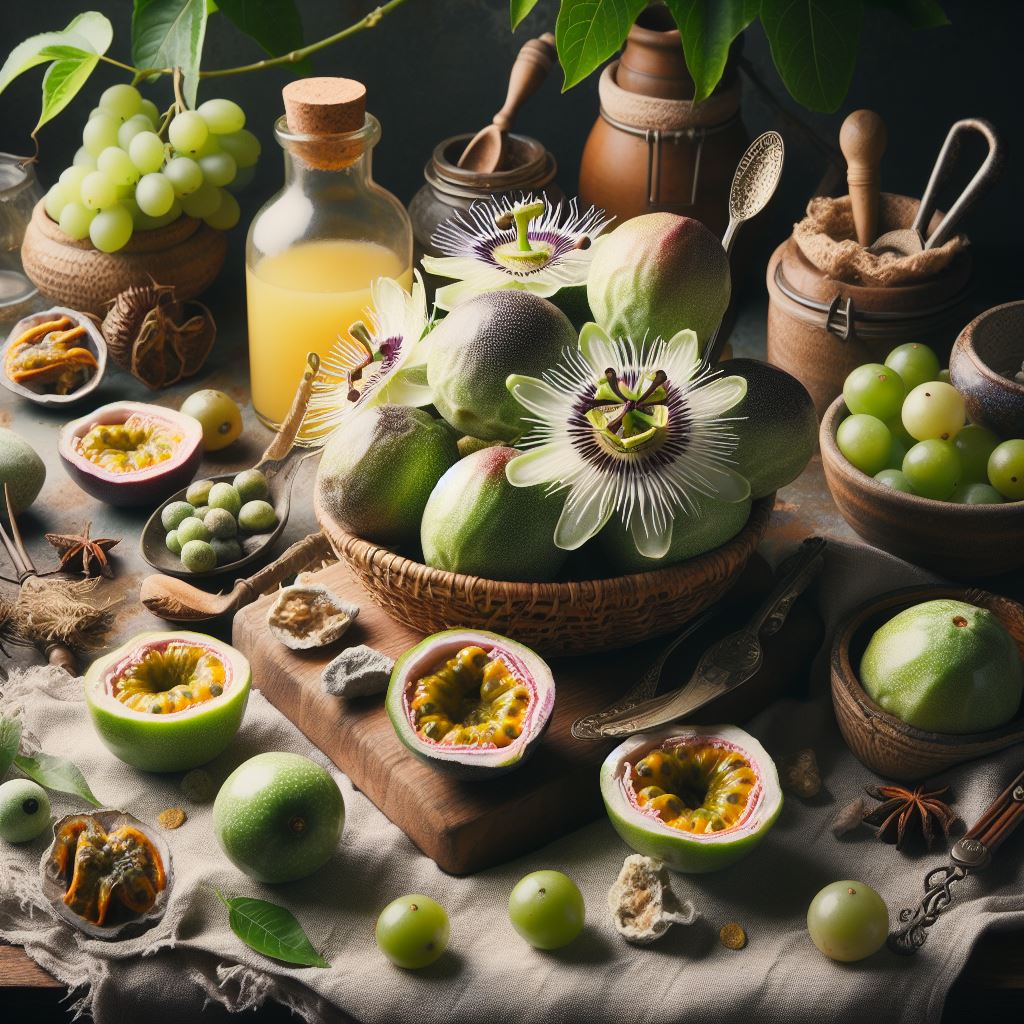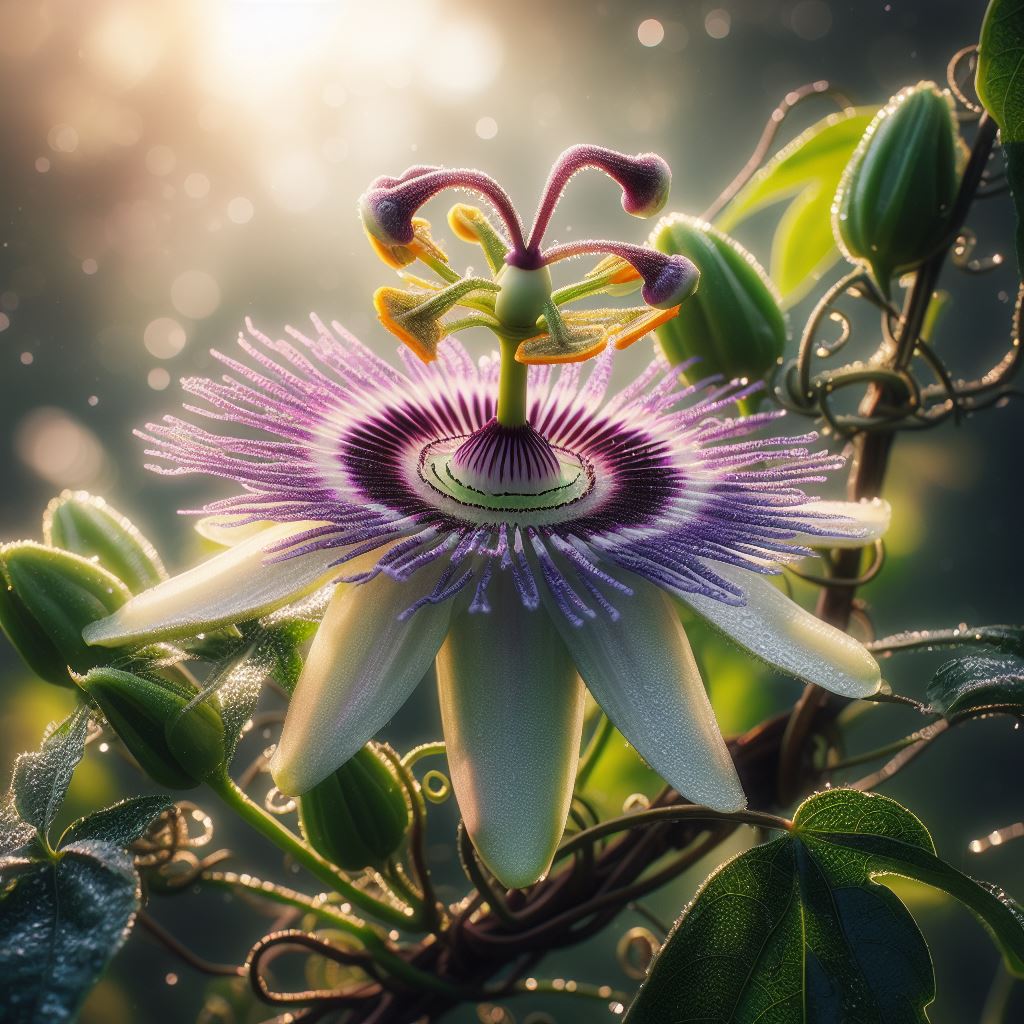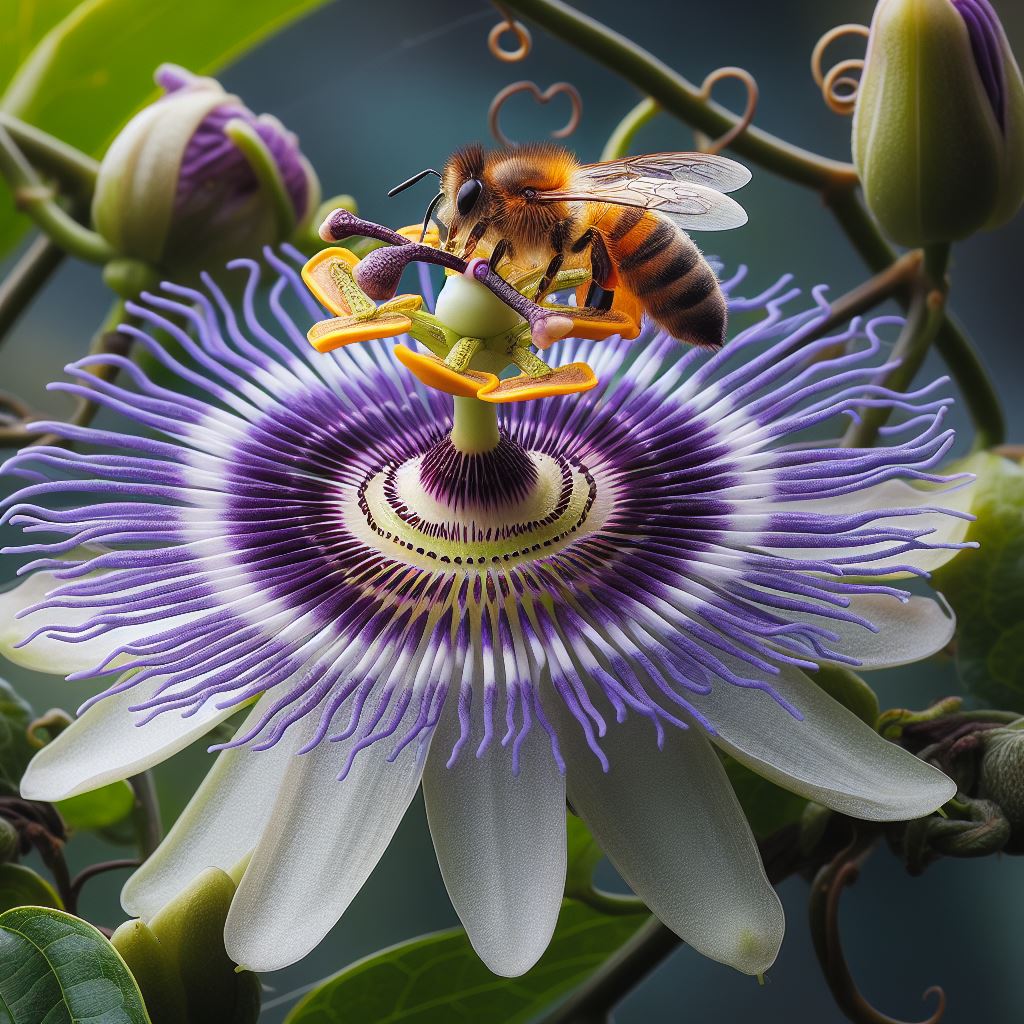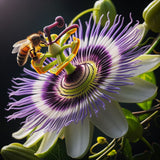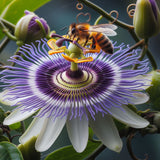Passiflora incarnata (Maypop, Purple Passionflower, True Passionflower, Wild Apricot, Wild Passion Flower, Wild Passion Vine)
Passiflora incarnata (Maypop, Purple Passionflower, True Passionflower, Wild Apricot, Wild Passion Flower, Wild Passion Vine) is a fascinating and beautiful flowering cold hardy plant native to the southeastern United States, with Hardiness zone : 5 and UP.
Appearance: Passiflora incarnata is a perennial vine that can reach lengths of up to 25 feet (7.6 meters). The plant features striking, intricate flowers with purple or lavender petals and a center composed of filaments and a prominent, cone-shaped structure. The leaves are palmately lobed and can be quite large, often around 3 to 6 inches in width.
Habitat: This species is commonly found in a variety of habitats, including open fields, thickets, and along roadsides. It's adaptable and can thrive in both cultivated and wild environments.
Ecological Role: The plant serves as a host for the Gulf Fritillary butterfly (Agraulis vanillae) and the Variegated Fritillary (Euptoieta claudia). These butterflies lay their eggs on the leaves, and their caterpillars feed on the plant. The flowers are also pollinated by bees, butterflies, and other insects.
Fruit: Passiflora incarnata produces a round, greenish-yellow fruit about the size of a hen's egg. The fruit is edible and contains a sweet and aromatic pulp. It is called "Maypop" due to the popping sound it makes when the ripe fruit is gently squeezed.
Traditional Uses: Various parts of the plant, such as the leaves, flowers, and roots, have been used in traditional herbal medicine for their potential calming and sedative effects. They have been historically used to treat conditions like anxiety and insomnia.
Cultural Significance: The passionflower, including Passiflora incarnata, holds cultural and religious significance for some indigenous groups. The unique floral structure has been associated with Christian symbolism, particularly related to the passion of Jesus Christ.
Ornamental Plant: Due to its striking flowers and interesting fruit, Passiflora incarnata is also cultivated as an ornamental plant in gardens and landscapes. It can be a beautiful addition to gardens and is often used to attract pollinators.
Passiflora incarnata is a captivating and versatile plant with a range of uses, from its ecological role in supporting pollinators to its traditional and ornamental applications. Its unique flowers and edible fruit make it a popular choice for both natural and cultivated settings.
Botanical Name : Passiflora incarnata
Common Name : Maypop, Purple Passionflower, True Passionflower, Wild Apricot, Wild Passion Flower, Wild Passion Vine
Height : 40 ft
Spread : 20 ft
Germination Info : Seed does not require a pre-treatment
Hardiness zone : 5+
Average seed per ounce : Approx. 850

